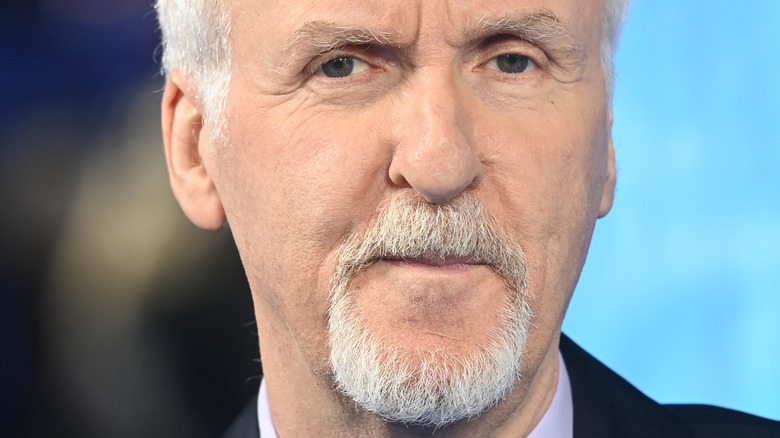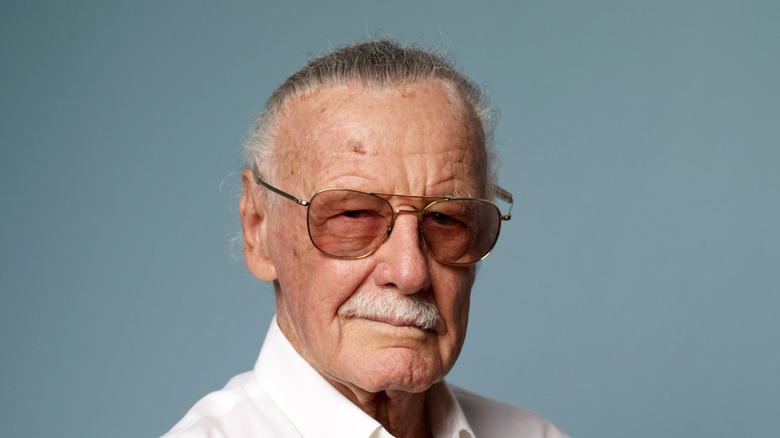Why James Cameron's X-Men Movie Never Happened
Hollywood can be a land of lost labor sometimes. Directors and writers will put in plenty of time on ideas that never make it to the big screen. Sometimes it's a budgetary issue. Sometimes the producers involved dislike treatments. Sometimes, studios interfere until the project is transformed into something else entirely. It's a very complicated, delicate machinery which often results in arguments, controversy, and even legal hassles.
After decades in the movie business, James Cameron has a huge legacy of hits behind him — and a number of misses. He, like any other director, has experienced failed projects that either never made it to the directing stage or never made it out of the scripting process. Per Den of Geek, treatments for "Aliens 3" and "Terminator 3" failed to be made, as did a sequel to his action blockbuster "True Lies." He was also involved in an early version of "Battle Angel," which eventually reached cinemas as Robert Rodriguez's "Alita: Battle Angel."
All of these stories are among the handful of James Cameron movies we'll never get to see. But Cameron also has ties to the Marvel world and several failed film projects connected to their properties — a fascinating prospect considering how highly critical he's been of both the Marvel Cinematic Universe and the DC Comics film world as of late, as recounted by Variety. Here's why his version of the "X-Men" mythos never made it to the big screen.
Another Marvel opportunity presented itself
Why didn't James Cameron's version of the "X-Men" world even come to fruition? We can place the blame on one mischievous and talented individual. Per an interview conducted by The Wrap in 2012 with X-Men scribe Chris Claremont, in the late 1990s, James Cameron was brought in to direct a movie about Marvel's "X-Men" universe by Carolco Pictures, who backed Cameron's "Terminator" films.
The proposal was that Cameron would produce the proposed X-flick, while his then-wife Kathryn Bigelow would direct the film. The script would be written by Gary Goldman, best known for creating "Big Trouble in Little China." Claremont — who created such famous "X-Men" storylines as the "Dark Phoenix" Saga — felt that all was moving along swimmingly. Claremont and Cameron had even named some actors they'd like to cast in the project, including Angela Bassett as Storm and the late Bob Hoskins as Wolverine.
It was all going well, that is, until a meeting between Claremont, representatives of Cameron's Lightstorm Entertainment, Bigelow, Cameron, and "X-Men" creator and Marvel legend Stan Lee occurred. During the confab, Lee pitched the notion of Cameron taking on a "Spider-Man" film.
"And they started talking. And talking. And talking. Twenty minutes later, all the Lightstorm guys and I are looking at each other, and we know the X-Men deal has just evaporated," Claremont ruefully remarked. The rights to the "X-Men" property would subsequently slip through Carolco's hands, eventually ending up a Sony property. That resulted in the rise of Hugh Jackman's Wolverine.
Here's why James Cameron's Spider-Man movie never happened
So what happened to James Cameron's "Spider-Man" film? James Cameron himself went on to write a treatment of the movie that eventually leaked onto the internet. A no-holds-barred version of Peter Parker's tale, which didn't shy away from profanity or explicit sexual situations, the film would have featured Electro and The Sandman as the main villains and Mary Jane Watson as Parker's romantic interest. Per Collider, the project progressed enough for casting decisions to be made, with Leonardo DiCaprio being considered for the part of Peter Parker. Arnold Schwarzenegger was also in the running for a role.
It was the bankruptcy of Carolco Pictures in 1996 that resulted in the death of Cameron's version of the movie. Carolco was sold to MGM, which prompted a lawsuit from Marvel, who wanted its property back. Though Cameron tried his best to get 20th Century Fox to buy the rights, MGM settled the suit and Sony took up the "Spider-Man" mantle. Cameron's vision was subsequently scrapped.
Both the "X-Men" and "Spider-Man" projects ironically ended up becoming other companies' property (20th Century Fox and Sony, respectively), but while neither bore Cameron's directorial stamp it's arguable that his ideas managed to move on into the finished products. Claremont's "Dark Phoenix" storyline — a loose possible subject of Cameron's version of the mythos — did become a part of the onscreen "X-Men" universe, and several elements from Cameron's "Spider-Man" treatment made their way into Sam Raimi's mega-successful 2002 take on the property, including the notion of Peter Parker having organic web shooters. One could say his approach was right on the money after all.


